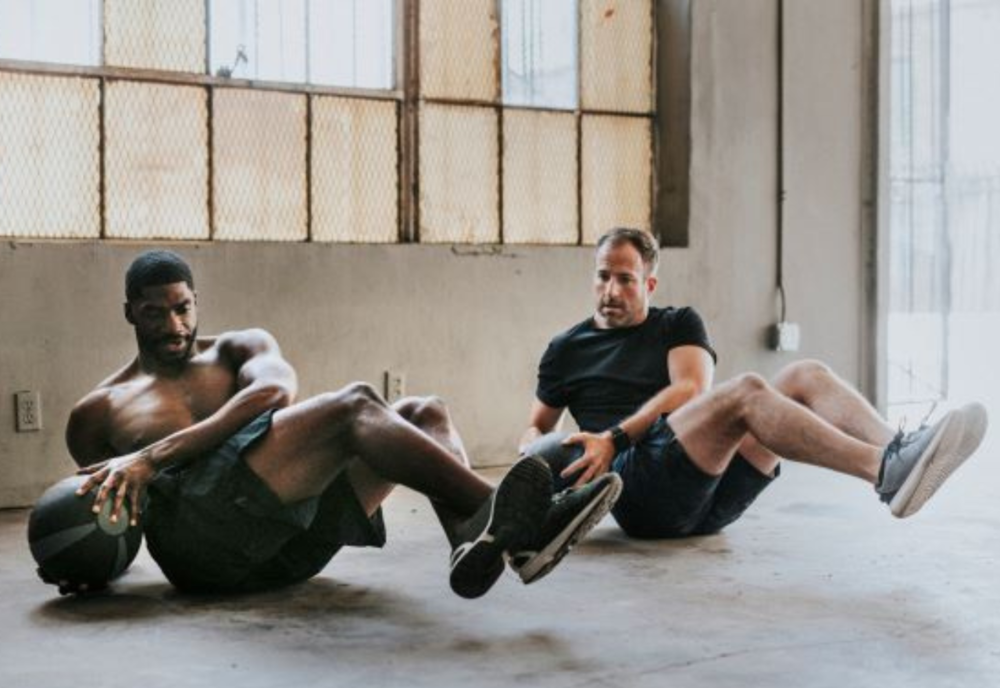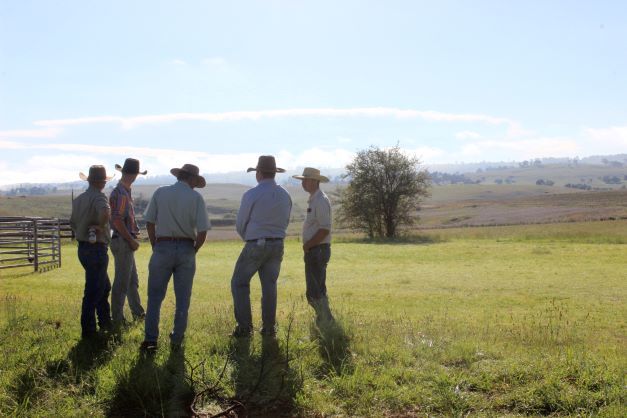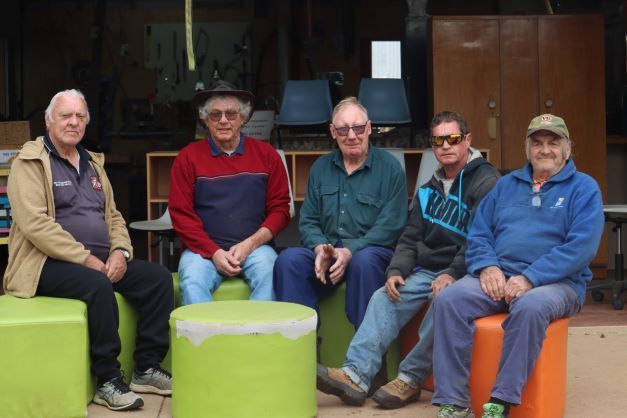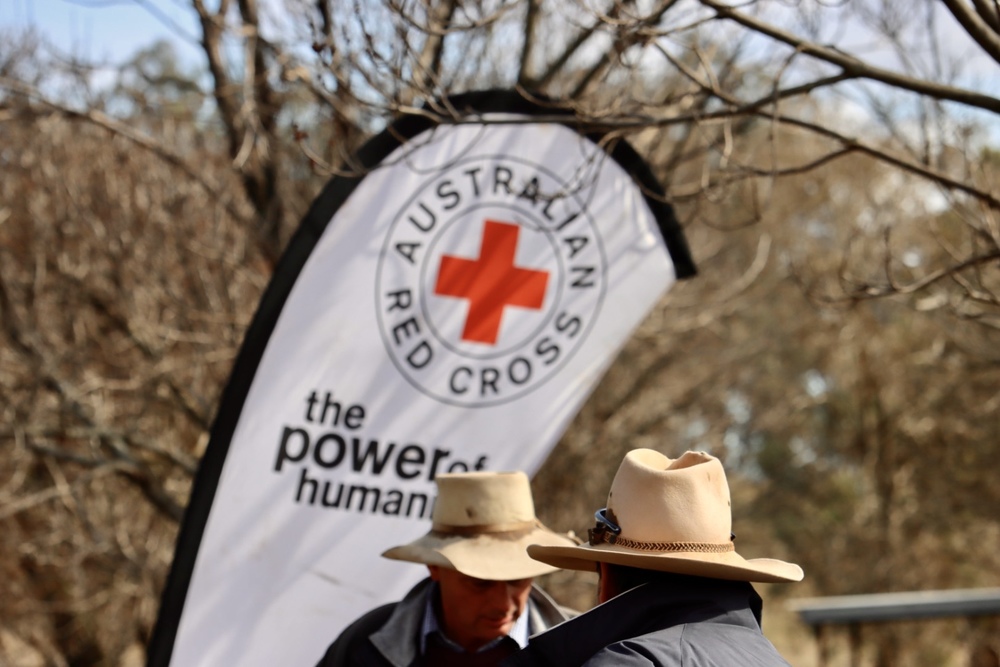Men's Health Week - time for the country to catch up
Angie White
19 June 2022, 7:50 AM
 There's plenty to talk about at a Red Cross Let's Talk session that could improve men's physical and mental health.
There's plenty to talk about at a Red Cross Let's Talk session that could improve men's physical and mental health.Is it time to check your health – measure your beer belly – ramp up your fitness regime?
Today marked the end of Men's Health Week - June 13 – 19 a timely reminder for males to check in with their health.
The theme of Men's Health Week 2022 is Building Healthy Environments for Men and Boys - focusing on creating physically, mentally and emotionally healthy environments in the home, workplace and in social settings.
Men have shorter than average life expectancy, are more likely to suffer illness and are more likely to take their own lives. This week is about having open discussions and heightening awareness of preventable health problems and rural doctors are asking their patients to break down their barriers to good health.
Men who live in rural and remote Australia make up one third of the male population and are more likely than city dwellers to have health risks and suffer chronic conditions.
Rural and remote people don't have the same access to healthcare that city dwellers have. They are also more likely to live with social and economic disadvantage, which is strongly linked to poor health.
Statistics show that rural men are more likely to be involved in risky health behaviours, such as smoking and heavy drinking, which can lead to chronic conditions.
For any form of cancer, very remote areas have the lowest survival rates, cities having the highest. This includes prostate cancer, which is predicted to be the most commonly diagnosed cancer in men in 2022.
For every 100 men who die of prostate cancer in Australian cities, 121 men die of prostate cancer in rural and remote Australia - Medical Journal of Australia
Data shows that people living in rural areas are twice as likely to commit suicide than people who live in major cities, attributing such factors as loneliness, stress caused by loss, drought, bushfires and floods, alcohol and drug misuse and untreated mental illness.
The social stigma attached with mental health in rural areas is also a deterrent for men needing help and doctors have reported seeing only 30% of men in surgeries, as men are much less likely to seek medical attention.
According to Western Sydney University - Men's Health Week works on the understanding that the best people to improve men's health in Australia are those who live, work and engage with men and boys in communities around the country.
Through a series of promotions, events and publicity around the country, Men's Health Week is designed to provoke thought and discussion about what needs to be done to improve male health.

This type of gym session could be a big ask - but a gym visit could pay off for rural blokes.
Get moving guys
Exercise plays a vital role in keeping Australian blokes healthier, happier and alive for longer, and unfortunately, only 17% of men are both sufficiently active and meet the recommended muscle strengthening guidelines.
Nyngan “Fitness Shed” Gym owner, Rani Dunn said, “It’s great to see more and more men in the gym working on their fitness and improving their levels of health.”
“We run challenges and programs to enhance their training and our gym is a great meeting place where the boys can work out and touch base about what’s happening in their day to day lives.”
“Gyms are the perfect place to get started on improving your health, so join your local gym and you will definitely see the results and meet great people too,” she said.
It’s not all bad though, there are many organisations for men all over Australia that focus on improving both physical and Mental Health.
Local Gyms are a great place to start and run many programs that promote health for males.
Weekend Parkruns, bike rides and family exercise are a great way to get your blood pumping.

These blokes took time out for a yarn during a dog training school. PHOTO Angie White
Help is at hand
Book in an appointment with your local GP to have an annual checkup and check that your mates are doing the same.
Lifeline offers free telephone counselling (24 hours a day), online support (7pm-midnight) and text support (6pm-midnight), as well as a tool kit for people living in drought-affected communities. Call 13 11 14 or visit lifeline.org.au.
Suicide Call Back Service provides free 24-hour phone, video and online counselling. Call 1300 659 467 or visit suicidecallbackservice.org.au.
Beyond Blue offers free telephone counselling (24 hours a day) and online support (3pm-midnight). Call 1300 22 4636 or visit beyondblue.org.au.
MensLine offers free 24-hour phone and online counselling to men. Call 1300 78 99 78 or visit mensline.org.au.
Developed in conjunction with the University of South Australia, ifarmwell is a free online toolkit that helps farmers cope with challenges such as drought.
Red Cross facilitates programs titled “Let’s Talk” that enables men and women to get off farm and learn new skills, providing a place where people can get together and talk.
The rise in community-based Men’s Shed around the country has given men a place to meet and talk while giving back to the community.
There are more than 1,000 Men's Sheds in Australia — including many in rural and remote areas. Visit the Australian Men's Shed Association to find one near you.

Members of Nyngan Men Shed touch base between jobs. PHOTO Angie White.
Make a date with MHERV
Another wonderful resource for men in rural areas is MHERV or Men’s Health Education Rural Van, a regional project made possible by fundraising, generous sponsorship and time freely given by hundreds of Rotary Volunteers.
A custom-built caravan with a dedicated Registered Nurse travels the state of New South Wales offering free health screenings to regional and rural men, who are notorious for being completely in the dark about the state of their health.
“Since 2017 MHERV has been out in the backblocks of NSW on two scheduled tours per year seeking out the menfolk who haven’t seen the inside of a doctor’s rooms for years. These are the blokes who drop dead in a paddock, because nobody saw it coming.”
The idea that a visit to the local doctor makes a man feel “less masculine” is part of the problem in tackling good health head on, particularly in rural areas and all health practitioners are working hard to dispel this myth.
Exercise Sport Science Australia (ESSA) CEO Anita Hobson-Powell says, “Exercise and physical activity are key components to having a well-rounded, healthy lifestyle.”
“Men’s Health Week 2022 is a timely reminder to think about how to incorporate physical activity into your lifestyle and look to tertiary qualified health professionals who can help design and safely deliver an effective program based on an individual’s needs.” says Anita.
There is no one size fits all approach but if you have any worries contact an accredited professional for help, they have years of training and only your best interests at heart.
Dr Megan Belot, President of the Rural Doctors Association of Australia (RDAA) said that good health makes for good life, so take action to improve both.
“GPs can get you up to date with your health screening, talk to you about lifestyle factors that may be affecting your health, help you deal with emotional struggles and diagnose and treat illness that may be underlying any symptoms.

“Prostate checks, diabetes checks, bowel screening, blood pressure checks… all of these can literally save your life, so book an appointment, check your concerns at the door, and have an open and frank conversation with your rural doctor to start getting on top of your health,” Dr Belot said.
“Men’s Health Week gives us all a great opportunity to reflect on the factors within our control that affect our health – think about reducing or quitting smoking, reducing your alcohol intake and getting in some exercise!”
